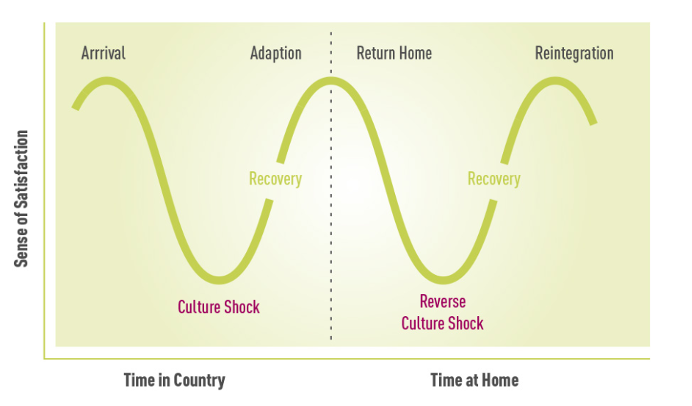International Student Newsletter
Dear International Students,
我们希望到目前为止你已经度过了一个美好的秋季学期,并且你会继续找到时间和空间去体验和认识那些给你带来快乐的人!和往常一样,我们想在这个月分享一些重要的资源和校园里发生的令人兴奋的事情。在公告部分,了解并考虑申请不同的校园学生领导机会,例如归属感大使和CCD-ERC学生大使。此外,请阅读教育资源中心的语言链接项目,该项目为波士顿大学的学生提供了一个参与多种语言对话小组的机会,包括英语;这是扩大词汇量和文化体验的好方法!查看波士顿大学多样性和包容性众包的波士顿文化指南,其中提供了有关自然发型,寻找所有种族食物和寻找LGBTQ社区等地点的信息。最后,请注意,作为国际学生研讨会系列的一部分,职业发展中心将于10月举办两场活动,重点是在美国面试,网络和实习机会的寻找。在“美国就业”部分,与大四学生欧文·梁(Owen Liang)见面,他回顾了自己在Vista的实习经历,包括最喜欢的部分和学到的经验教训,并分享了对国际学生的建议。在文化角,你可以了解到在国外生活的不同阶段的适应过程,以及不同的BU资源,将帮助你克服它。
We wish all students the best of luck with their mid-term projects and exams. If you have any feedback or suggestions for future newsletters, please contact Kamelia Turcotte at kameliat@bu.edu.
Announcements

On-Campus Leadership Opportunities for Students
Learn about and consider applying to different student leadership opportunities on campus, including the Dean of Students’ Belonging Ambassador, the Center for Career Development- Educational Resource Center Student Ambassador, or the Community Service Center Alternative Service Break Program Chair.

ERC’s Language Link Program
The goal of Language Link is to have fun in conjunction with increasing language proficiency, confidence, and social interaction in another language. It’s a great opportunity to connect with others interested in language and culture!
Learn More
D&I’s Cultural Guide to Boston
Check out the BU Diversity and Inclusion’s crowdsourced Cultural Guide to Boston. This searchable online resource features local recommendations from BU faculty, staff, and students on neighborhoods, restaurants, arts and culture, spirituality, and many more.
Learn More
CCD International Student Workshop Series
In collaboration with the International Student and Scholar Office, the Center for Career Development is hosting two events in October focused on interviewing in the U.S., networking, and internship search.
Learn More & RSVPUpcoming Events
Employment in the U.S.

A Word from Students
BU student, Owen Liang (CAS’23) reflects on his internship at Vista, and shares advice with international students.
Read the Full StoryCulture Corner
Culture Shock
One of the most common challenges international students face in their first semester in college is the process of adjustment to the new,” host” country, also known as culture shock. According to Meriam Webster, culture shock is “a sense of confusion and uncertainty sometimes with feelings of anxiety that may affect people exposed to an alien culture or environment without adequate preparation.”
It is important for students to recognize the different stages of the adjustment process including honeymoon, culture shock, recovery, adaptation, and the different characteristics for each one. While it is true that everyone will undergo the various adjustment phases differently, and for a different period of time, the typical adjustment phases look like the U curve below (the first half of the W graph).

Source: Cultural Adjustment Phases, MIT ISO
To minimize the culture shock phase of the adjustment process, students should keep in touch with family and friends back home- but it is important to also identify new sources of support. A great way to build up a personal support system is to get involved in the social aspects of campus life at BU. We encourage students to attend events and research the 450+ clubs and organizations at BU where they can participate in their home culture traditions and consume media that reminds them of home. Additionally, it may be worth exploring Boston’s neighborhoods, many of which are very diverse in terms of culinary offerings. We also encourage students to embrace the “new culture” of BU by taking part in Terrier traditions like lobster night, the pumpkin drop and sports events like hockey. Lastly, if students have a prolonged struggle with homesickness, they can reach out to campus resources like student support groups and social, emotional, and spiritual wellbeing resources.
Reverse Culture Shock
The second half of the W curve above shows the similar adjustment process when students return to their home country. In preparation for the return, students should consider three main points, including 1) the home country has changed; 2) the student has changed; 3) the student has adapted to another culture and now must readapt. Students may realize that things at home are very different from when they left, and feel like they no longer belong.
It is important to remember that culture shock is not a sign that anything is wrong. On the contrary, it is an intrinsic part of living abroad. It is best to understand and acknowledge the different phases, and identity ways and resources to help overcome it. Eventually, students will be able to look back on these experiences with fond memories.
Sources and additional information: Culture Shock Stages: Everything You Need to Know, Reverse Culture Shock, Cultural Adjustment Phases
If you have suggestions for an aspect of American culture to feature in the next communication, please contact Kamelia Turcotte at kameliat@bu.edu
The Compass
There are over 250 academic, housing, community, and employment resources currently on the Compass and each issue we will highlight two.





